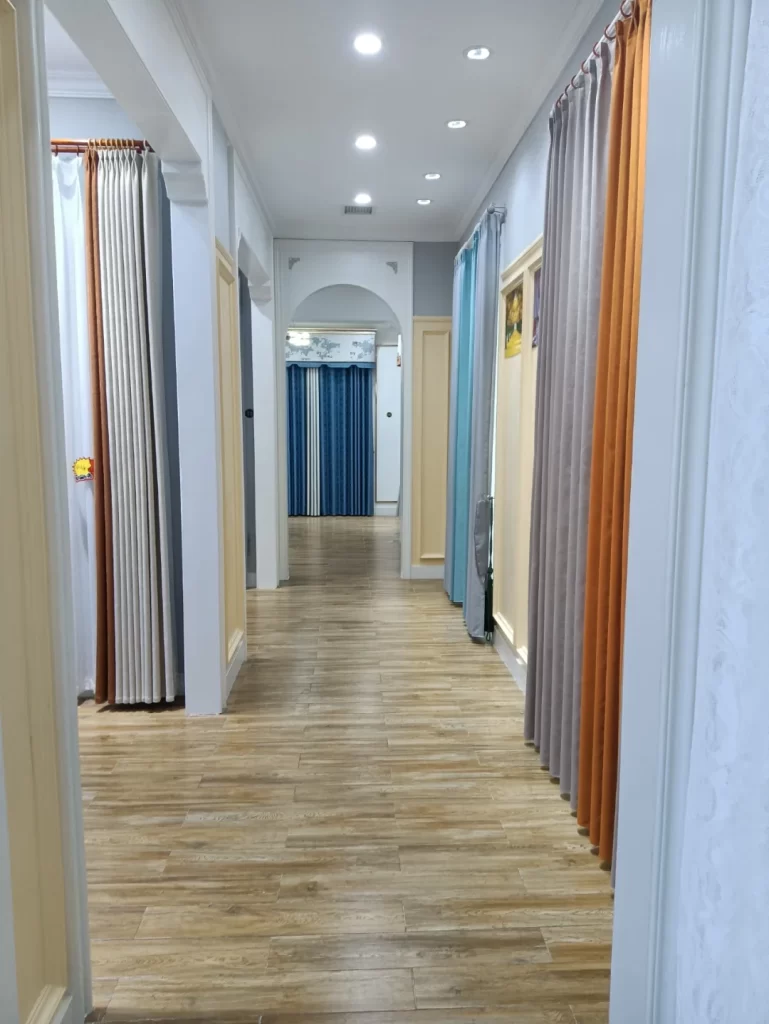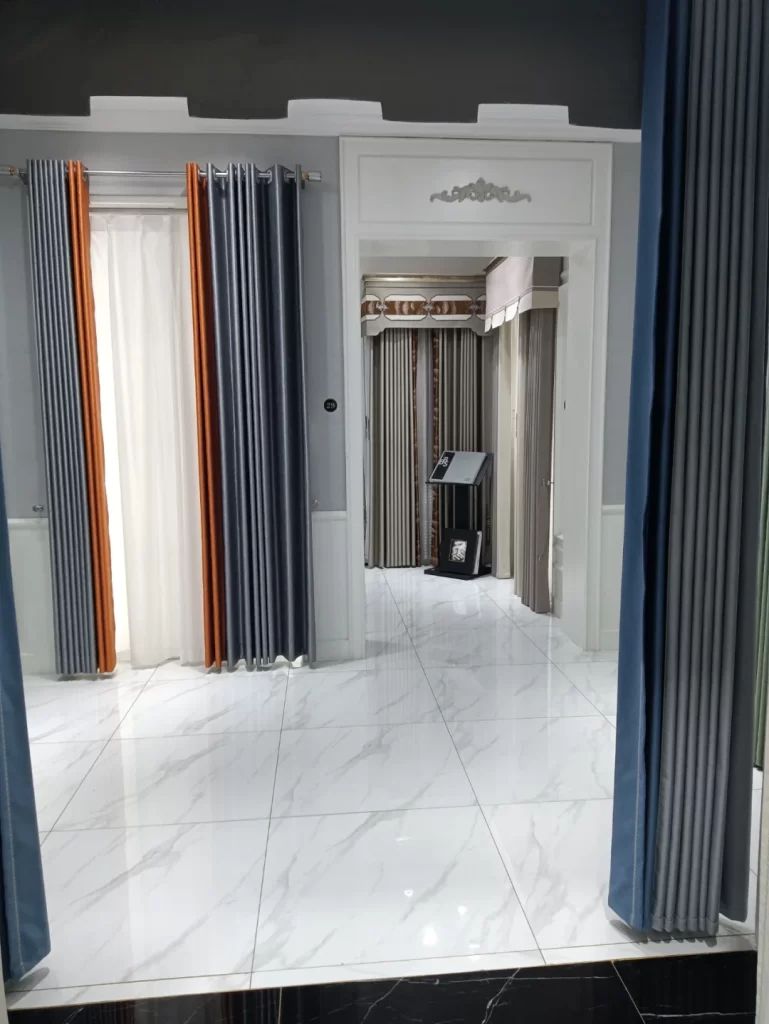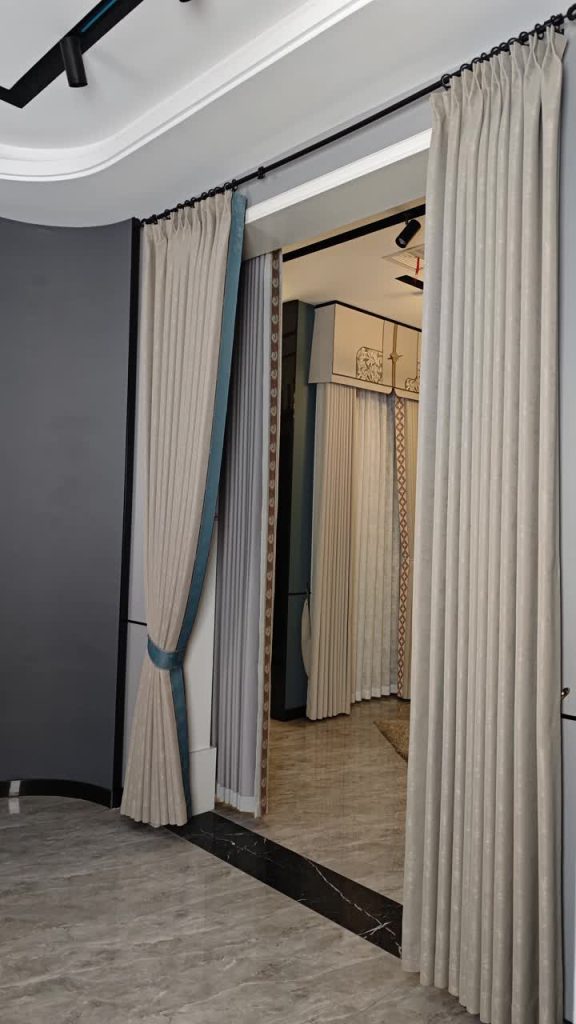


Curtains are no longer passive window coverings—they are dynamic design elements that shape ambiance, enhance functionality, and reflect brand identity. From hotel curtains that elevate guest experiences to bedroom curtains that personalize living spaces, the fusion of craftsmanship and technology is redefining interior design. This article explores how custom curtain factories and OEM manufacturing are driving this transformation.
—
1. Hotel Curtains: Where Luxury Meets Functionality
Hospitality spaces demand curtains that balance elegance with durability. Key advancements include:
– High-Performance Fabrics: Flame-retardant textiles, antimicrobial coatings, and UV-resistant linings ensure compliance with safety standards while reducing maintenance.
– Acoustic & Thermal Efficiency: Multi-layered designs with noise-dampening cores and thermal insulation improve energy efficiency by up to 30%.
– Architectural Adaptability: Custom solutions for curved windows, automated tracking systems, or expansive atriums.
*Trend Alert*: Over 75% of luxury hotels now prioritize sustainable materials, such as recycled polyester blends or OEKO-TEX® certified linens, to align with eco-conscious traveler expectations.
—
2. Bedroom Curtains: Crafting Personalized Retreats
Modern bedrooms demand curtains that blend aesthetics with practicality:
– Smart Light Control: Dual-layer designs combining sheer fabrics for natural light diffusion and blackout panels for restorative sleep.
– Voice-Activated Automation: Integration with smart home ecosystems (e.g., Alexa, Google Home) for seamless operation.
– Textural Depth: Velvet for luxury, linen for organic minimalism, or geometric embroidery for artistic flair.
Collaboration with a custom curtain factory enables unique touches like hand-stitched trims or modular designs tailored to niche decors.
—
3. The Role of Custom Curtain Factories
Specialized manufacturers provide end-to-end solutions that streamline production:
– Design Flexibility: Transform sketches, CAD files, or mood boards into precise, branded collections.
– Scalable Production: Prototype development for boutique projects or bulk orders for hotel chains.
– Cost Efficiency: Direct sourcing of premium fabrics reduces overheads by 20-30% without compromising quality.
For brands, OEM manufacturing simplifies private-label production, allowing businesses to focus on marketing while factories handle technical execution.
—
4. OEM Manufacturing: Bridging Creativity and Scalability
OEM partnerships empower businesses through:
– Rapid Prototyping: 3D renders and physical samples delivered in 5-7 business days.
– Flexible MOQs: Low minimum order quantities (as low as 50 units) cater to startups and seasonal launches.
– Global Compliance: Certifications like ISO 9001 and GOTS validate ethical and sustainable practices.
*Market Insight*: 70% of interior designers prioritize OEM partners for their ability to merge customization with speed-to-market.
—
5. Future-Forward Innovations
Stay ahead with these cutting-edge strategies:
1. Circular Design: Curtains made from biodegradable fibers or closed-loop recycled materials.
2. Smart Coatings: UV-blocking layers for sunlit spaces or moisture-wicking liners for humid climates.
3. AI-Driven Customization: Virtual tools enabling clients to visualize designs in real room settings.
—
Conclusion
From hotel curtains that impress global travelers to bedroom curtains that reflect individuality, collaboration with a custom curtain factory ensures excellence in every detail. For brands, OEM manufacturing offers a strategic pathway to scalability, blending innovation with cost efficiency. As sustainability and smart technology reshape design, bespoke window treatments emerge as timeless investments in elegance and purpose.
Article link:https://www.vlefooena.com/manufacturer/3367

No reply content